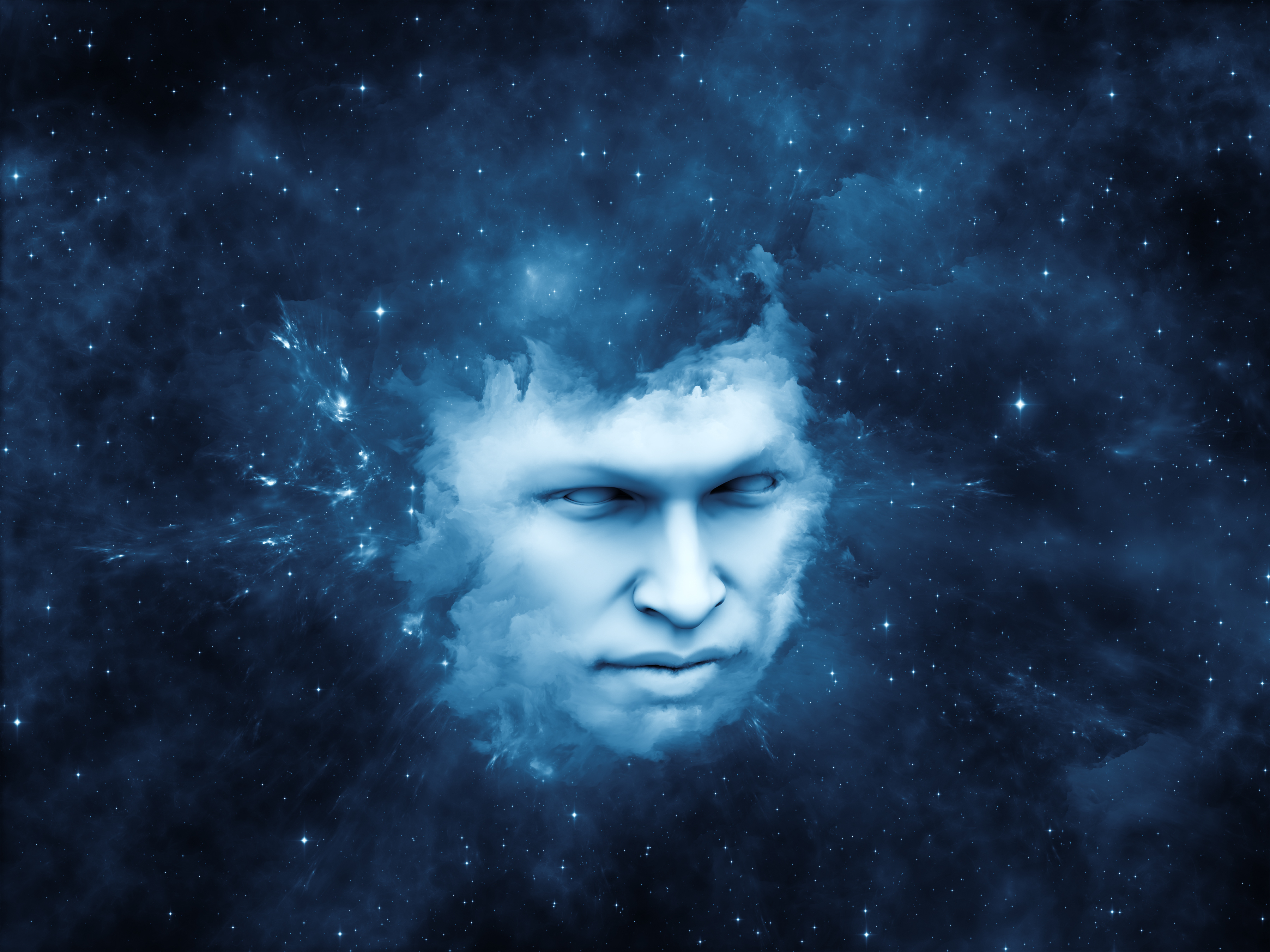The Fatal Silence | MYSTERY BABYLON & the Lake of Fire according to 1 Enoch

LONG AGO TWO HUNDRED ANGELS DESCENDED upon Mount Hermon in order that humanity might learn the mysteries of heaven, and then one day, while Azazel, Semjaza, and the lot of their fellow transgressors were sitting around weeping, the Prophet Enoch met them. He had been asked to write a petition on their behalf, that they might be forgiven of their sins. They were forbidden audience with the Lord and condemned from lifting their eyes up and beholding heaven. On the night prior, Enoch had fallen asleep by the waters of Dan and dreamt of beautiful places. He had visions of the very heaven which they longed to survey, and of a far worse place which awaited them. It was at the very ends of heaven and earth itself, the Prophet wrote, where he saw something horrible. There, in the chaos and the void, he witnessed neither a heaven above nor a firmly founded earth below, but a desert numbered with seven stars. These stars, Enoch wrote, had the appearance of “great burning mountains,” for as he stood there watching them, paralyzed with a trembling fear, they rolled about in the fire. And nothing could quench their torment.
The Prophet asked the angel standing next to him: “For what sin are they bound, and on why have they been cast in here?”
Uriel responded: “These are some of the stars of heaven, which have transgressed the commandment of the Lord. This has become a prison for the stars and the host of heaven. And the stars which roll over the fire are they which have transgressed the commandment of the Lord in the beginning of their rising, because they did not come out at their proper times.”
Among these terrible revelations the Prophet would write: “And I, Enoch, alone saw the vision, the ends of all things, and no man shall see as I have seen (Enoch 19:3).”
Despite the fact that Azazel and Semjaza and their confederacy of Occult fathers threw the host of humanity into delusion by revealing the hidden knowledge of heaven, even now we see at best “through a mirror, darkly (1 Corinthians 13:12).” Unlike Enoch, we can only gaze heavenwards through the eye of a telescope and wonder. And yet if the book of Enoch is to be believed, the Prophet who “walked with God” was given the greater truth altogether. He was delivered the greater mysteries of heaven “face to face.” His revelation was a legitimate reality, for he was shown the consequence behind the delusion of astrology and its Science counterpart—astronomy. Beyond the firmament, in a desert place nestled among the chaos and the void, Enoch saw what no other man has seen nor shall see. No telescope nor Scientific contraption can ever show us the angels we know today as the planets Mercury, Venus, Mars, Neptune, Jupiter, Uranus, and Saturn, who were reeling in torment before him.
For this reason, Enoch was instructed to tell the Watchers: “You were in heaven, but all the mysteries of heaven had not been revealed to you, and you knew worthless ones, and these in the hardness of your hearts you have made known to the women, and through these mysteries women and men work much evil on earth.”
And so, returning to Azazel, this is what Enoch told him: “Azazel, you shall have no peace.”

*
“The second angel blew his trumpet, and something like a great mountain, burning with fire, was thrown into the sea (Revelation 8:8).”
*
THE BIBLICAL SCHOLAR WHO INSISTS JOHN the Revelator introduced the world to the Lake of Fire has overlooked two irrefutable facts; that Plato spoke of a burning lake within his esoteric globe myth, a place where the immortal souls of the wicked are tormented until the moment they are reborn, via reincarnation, and also the Prophet Enoch, who sought to correct the worthless mysteries of heaven as revealed in Phaedo and other bestsellers. Four times John brings Enoch’s Lake of Fire to our attention—in Revelation 19:20; 20:10; 20:14-15; and 21:8—and if we refer back to the Gospels the message is irrefutably consistent. According to Jesus, the eternal fire was “prepared for the devil and his angels.”
Jesus furthermore named this geographical landmark the “outer darkness.” Enoch would surely agree with this unknowable zip code. In His parable of the wedding crasher, the king said of his unwelcome guest: “Bind him hand and foot, and take him away, and cast him into outer darkness; there shall be weeping and gnashing of teeth (Matthew 22:13).” But here is our direct connection. Jude would later concur with his brother Jesus when he identified the deceived soul—those who do not contend earnestly for the faith but “have gone in the way of Cain, and ran greedily after the error of Balaam for reward”—by cleverly and perhaps sarcastically comparing them to planets, rather ironically, and the blackness of darkness which await them. “Wandering stars,” Jude writes, “to whom is reserved the blackness of darkness forever (Jude 1:13).”
The Apostle Peter likewise understood the correction of a Hellenistic myth when he himself accepted the premise of Plato’s fiery underworld only so much as it was a prison prepared for angels by God and not the immortal human soul doctrine. This is no doubt why he accredited Enoch’s fiery place of torment with the name Tartarus.
With this in mind, I have little doubt that the Book of Enoch was written as a knee-jerk reaction to the cancer of Platonism. The Greeks had prepared enough poisoned hemlock from Socrates deathbed for the whole of humanity to drink and with adequate leftovers to pass around again. The transcendentalist Ralph Waldo Emmerson would later write of him: “Plato is philosophy, and philosophy, Plato—at once the glory and the shame of mankind, since neither Saxon nor Roman have availed to add any idea to his categories.” This was very much true for the Hellenistic Jew. With Phaedo, Plato introduced the uninitiated public to the neophyte’s globe earth, which outwardly consisted of seven ascending spires and the eighth heaven of heavens encapsulating it. In response to Plato’s cosmological halo, Enoch is taken on a grand tour of a flat, enclosed earth, beyond the earth and under the earth, even beyond the firmament to the chaos and the void and the prison of the angels, and finally to heaven above. We learn of the courses of the luminaries, of the sun and the moon in their ceaseless rising. We learn of that and so much more. With Enoch’s rebuttal against the fashionable incursion of Platonism, the loyal literalist is beckoned to a sense of Biblical nationalism. While waking up to the reality of Eratosthenes’ globe measurements, the child of God was once more challenged to gaze back upon Job 38, when the LORD spoke to Job from out of the storm and rhetorically asked if he could calculate the breadth of the earth.
To this effect, Enoch asks of his reader:
“And who is there of all men that could know what is the breadth and the length of the earth, and to whom has the measurement been shown of all of them? Or is there anyone who could discern the length of the heaven and how great is its height, and on what it is founded, and how great is the number of stars, and where all the luminaries rest (Enoch 93:13-14)?”
So also Plato popularized another worthless hidden knowledge from the Mystery religion—the immortal soul doctrine. Once again, Enoch clung to the belief of his Hebrew contemporaries—that the soul is mortal; that the spirit must return to God and wait upon the day when “the congregation of the righteous shall appear, and sinners shall be judged for their sins, and shall be driven from the face of the earth (Enoch 38:1).”
This is to concur with the resurrection of the dead according to Daniel.
“And at that time shall Michael stand up, the great prince which standeth for the children of thy people: and there shall be a time of trouble, such as never was since there was a nation even to that same time: and at that time thy people shall be delivered, every one that shall be found written in the book. And many of them that sleep in the dust of the earth shall awake, some to everlasting life, and some to shame and everlasting contempt. And they that be wise shall shine as the brightness of the firmament; and they that turn many to righteousness as the stars for ever and ever. (Daniel 12: 1-3).”
With the physical shape, quality and character of the soul always in debate between the Platonist and Aristotelian, Enoch attempts to pull the child of God away from the philosophical discourse of imagination and delusion by asking his reader: “And how should there be one who could behold heaven, and who is there that could understand the things of heaven and see a soul or a spirit and could tell of it, or ascend and see all their ends and think them or do like them (Enoch 93:12)?”

There is of course the perpetual onslaught of the Babylonian Mysteries to consider. Of particular interest is the apkallu incursion of Mesopotamian literature which Moses first sought to correct in Genesis 6. So did Enoch. The book which bares his name completely dismissed the transmission of divine knowledge from the Watchers of Mount Hermon as a nightmarish knowledge altogether. In his book Reversing Hermon, Dr. Michael S. Heiser writes: “A well-known tablet from Uruk dating to the Seleucid period plots out this transmission of divine knowledge on both sides of the Flood. It lists [seven] pre-diluvian kings, each of them accompanied by an assisting apkallu, the divine sage who gave the king the knowledge necessary for civilization.” According to Dr. Heiser, the point of the Jewish writers behind the Enochian literature “was to turn the Mesopotamian belief system on its head, to make sure that Israelites and Jewish readers would know that what happened between the sons of God and the daughters of humankind was not something that bettered humanity. It was the opposite—a transgression of heaven and earth that would corrupt humankind and produce a lineage that would later be a threat to the very existence of Israel, Yahweh’s portion and people.”
Enoch’s underlining doctrine stands in accordance with Moses. The Lawgiver wrote: “When the Most High divided to the nations their inheritance, when he separated the sons of Adam, he set the bounds of the people according to the number of the children of Israel. For the LORD’s portion is His people; Jacob is the lot of his inheritance (Deuteronomy 32:8-9).”
A day is coming when everyone will receive his portion. A man will either receive his portion with “the angels which kept not their first estate, but left their own habitation (Jude 1:6),” or with the King of kings and Lord of lords. Our Savior hoped to wet our appetite while simultaneously prompting us to action: “And, behold, I come quickly; and my reward is with me, to give every man according as his work shall be (Revelation 22:12).” John’s Revelation equally warns his reader by returning their attention to Enoch’s Lake of Fire, particularly “the cowardly, the faithless, the detestable.” John writes: “as for murderers, the sexually immoral, sorcerers, idolaters, and all liars, their portion will be in the lake that burns with fire and sulfur, which is the second death (Revelation 21:8).”
Though the angel’s prison is eternal, and their sentence irreversible, Enoch seems to keep in line with the Hebrew mortalist position, because even the angels will be “burnt up with the condemned” and ultimately “destroyed.” To this effect, the LORD told His angel Gabriel: “In those days they shall be led off to the abyss of fire and to the torment and the prison in which they shall be confined forever. Then Semjaza shall be burnt up with the condemned and they will be destroyed (Enoch 10:13-14).”
This is the final judgement, the darkest hour before the endless light of eternity dawns upon us. “In those days, Sheol will return all the deposits which she had received and hell will give back all that which it owes (Enoch 51:1).” John the Revelator once more mirrored Enoch when he wrote: “And the sea gave up the dead that were in it, Death and Hades gave up the dead that were in them, and all were judged according to what they had done (Revelation 20:13).”
There is however another rarely discussed feature of Enoch’s Lake of Fire, perhaps because confusion has long been a pestilence here. In his vision, Uriel told Enoch: “The angels who have had sex with women shall stand here.” The Prophet then made special mention of “the women also of the angels who went astray,” specifically, that they “shall become sirens (Enoch 19:2).”
Sirens, he says.
In his notebooks, Leonardo da Vinci wrote of the siren: “The siren sings so sweetly that she lulls the mariner to sleep, then she climbs upon the ships and kills the sleeping marines.” Enoch could not stand to look at that “fearful place [prison of the angels] because of the spectacle of the pain (Enoch 21:10),” and yet we are expected to believe the wives of angels are comparable to the coquettish bare-bosomed women of Greek mythology who lured sexually malnourished sailors to a rocky and shipwrecked doom with their enchanting instrumental arrangements and singing voices.
Perhaps John the Revelator can be of help again. The Apostle John appropriately understood the corrected vision of Enoch. The sirens, he suggested, might best be looked upon as a whore.
“This calls for a mind that has wisdom: the seven heads are seven mountains on which the woman is seated (Revelation 17:9).”
Those intimate with Enoch would have immediately understood the seven mountains on which the woman is seated. Once again correcting a misguided faith in the Occult, John dismisses any supposed enlightenment which may have derived from the Watchers and, only partially comparable here, the seven pre-diluvian kings of Mesopotamian literature when he adds: “also, there are seven kings.”
This calls for a mind that has wisdom.
By this we are to understand John furthermore aims to direct our attention to Isaiah’s conspiratorial penmanship. With the spell casting of Babylon on his mind, the Major Prophet wrote concerning Satan’s great and awful secret religion:
“And thou saidst, I shall be a lady forever: so that thou didst not lay these things to thy heart, neither didst remember the latter end of it. Therefore hear now this, thou that art given to pleasures, that dwellest carelessly, that sayest in thine heart, I am, and none else beside me; I shall not sit as a widow, neither shall I know the loss of children: But these two things shall come to thee in a moment in one day, the loss of children, and widowhood: they shall come upon thee in their perfection for the multitude of they sorceries, and for the great abundance of thine enchantments. For thou hast trusted in they wickedness: thou hast said, None seeth me. Thy wisdom and they knowledge, it hath perverted thee; and thou hast said in thine heart, I am, and none else beside me. Therefore shall evil come upon thee; thou shalt not be able to put it off: and desolation shall come upon thee suddenly, which thou shalt not know (Isaiah 47:7-11).”
According to Isaiah, the soothsayer of Babylon thinks she is clever enough to remain hidden while luring mankind with her perverted wisdom and knowledge. If Enoch and John can be inserted here, she conclusively is reeling them into the lake of destruction. And yet her ultimate goal is always the same—to ascend to heaven and dethrone God, or perhaps convince us she can—we can—by way of evolutionary doctrine and heavenly know-how entangled with enchantment. More-so, she wants to be God, for she deliriously says in her heart: “I am, and none else beside me.”
Those who go whoring after her attend another sort of church altogether. It is one in which adulterous relationships and alliances have been entered with the leaders and the kings of the world—in this current election year and every other; past, present, and future—so that the inhabitants of the earth are made drunk by the very false realities which give credibility to her teachings.
The Apostle Paul wrote of the true church: “For I am jealous over you with godly jealousy: for I have espoused you to one husband, that I may present you as a chaste virgin to Christ (2 Corinthians 11:1-2).”

John further tips us off to the Babylon whore religion as dealing in Mysteries. “And upon her forehead was a name written, MYSTERY, BABYLON THE GREAT, THE MOTHER OF HARLOTS AND ABOMINATION OF THE EARTH (Revelation 17:5).”
Knowing this now, the planets which Enoch observed and their very prison which Jude and the Apostles Peter and John concluded were true, one thing is certain.
We have been duped.
The woman who sits upon the seven mountains of Enoch’s vision is space. She is atomic theory. She is the other dimension just beyond our reach. She is evolution and transhumanism, artificial intelligence and the promise of singularity. She is the immortal soul doctrine. She is the flickering television—the life-giving idol which is granted permission to speak. She is music—the song which mesmerizes and beckons the soul to sing and the voice which slowly lulls us to sleep. She is alchemy and astrology and their Science counterparts in the Neophyte’s modern halls of initiation. She is Hollywood, Nashville, New York City, London, Mecca, Alexandria and Rome. She is hidden knowledge from heaven above, revealed unto us through religion and philosophy. She is self-salvation. She is that and more—so much more. She is the great delusion which the western and eastern world is built upon. She is the Mother of Harlots and Abomination of the earth. She is the Copernican Revolution.
The Apostle John laid out the great deception of the ages.
No wonder why they had the book of Enoch buried.